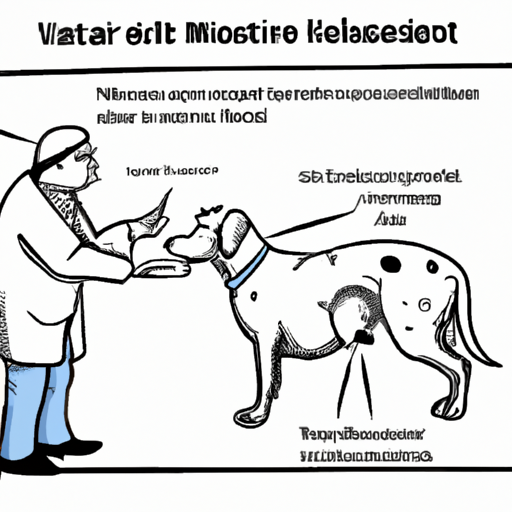“`markdown
How to Treat Mastitis in Dogs
What is Mastitis and How to Recognize its Symptoms
Mastitis is a distressing condition that affects nursing dogs. It’s an infection in the mammary glands that can cause discomfort, illness, and in severe cases, pose a serious threat to the mother’s health. As a caregiver, you’d notice symptoms like:
- Swelling and redness of the mammary glands
- Fever and lethargy
- Puppies not nursing well
Understanding these signs is the first step towards helping your dog recover.
When to Seek Veterinary Help
The moment you notice these symptoms, it’s time to act. Don’t hesitate to seek veterinary help. Your vet will typically perform a physical examination, potentially followed by:
- A bacterial culture
- Blood tests
- Ultrasound
Remember, it’s always better to be safe than sorry. Your vet will guide you on the best course of treatment.
Treatment Options for Mastitis in Dogs
Treatment typically involves antibiotics and warm compresses to ease the discomfort. If the mastitis is severe, your dog may need surgery. Here’s a quick breakdown:
| Treatment | Description |
|---|---|
| Antibiotics | Prescribed by the vet, these are essential in fighting the infection. |
| Warm Compresses | A warm cloth applied to the affected area can provide relief and help with swelling. |
| Surgery | In severe cases, the infected mammary gland may need to be surgically removed. |
How to Care for Your Dog During Recovery
As a caregiver, your role in your dog’s recovery journey is crucial. Here’s how you can help:
- Administer the prescribed medication on time.
- Ensure your dog is getting plenty of rest.
- Keep the living area clean and comfortable.
- Monitor the condition of the mammary glands.
Preventing Mastitis in the Future
Prevention is always better than cure. Here are a few tips:
- Keep your dog’s living area clean.
- Regularly examine the mammary glands for any abnormalities.
- Ensure the puppies are nursing properly.
Frequently Asked Questions
Q: Can mastitis be fatal?
A: If left untreated, mastitis can indeed become life-threatening. It’s crucial to seek veterinary help as soon as you notice the symptoms.
Q: How long does it take for a dog to recover from mastitis?
A: With proper treatment and care, dogs usually recover from mastitis in 2 weeks.
Q: Can mastitis affect the puppies?
A: Yes, if the infection is severe, it can affect the milk production and impact the puppies’ health.
Remember, as a passionate caregiver, your vigilance and prompt action can make all the difference in your dog’s health and wellbeing.
“`



